If you like to see the mighty fall, I have bad news for you.
AI won’t kill Google.
Still, if you like to see the mighty fall, I have good news for you, too.
AI won’t kill Google... but here’s something else that will.
—
You know what they’re saying about Google and AI:
- Google doesn’t get AI
- Gemini is too little, too late
- Google’s playing catch-up with OpenAI
- the culture at Google prevents them from creating a sane AI
- Google’s core business is at risk
- pretty soon, no one will be searching with Google, we’ll all be chatting with GPT
- Google will lose billions of dollars of business to OpenAI
- AI will kill Google
I’m not so sure.
Here’s why.
History rhymes
There have been plenty of times in tech history when the undisputed giant of the industry was disrupted and died...
...or so the story goes.
There was the time IBM missed the importance of windows and was disrupted by Microsoft.
And the time Microsoft missed the importance of the web and was disrupted by Netscape.
And the time Facebook missed the importance of mobile and was disrupted by Instagram.
And the time YouTube missed the importance of shorts and was disrupted by TikTok.
Except that, last time I looked, IBM, Microsoft, Facebook and YouTube were all doing just fine.
When Windows launched in 1985, IBM was worth $30 billion. Now it’s worth $160 billion.
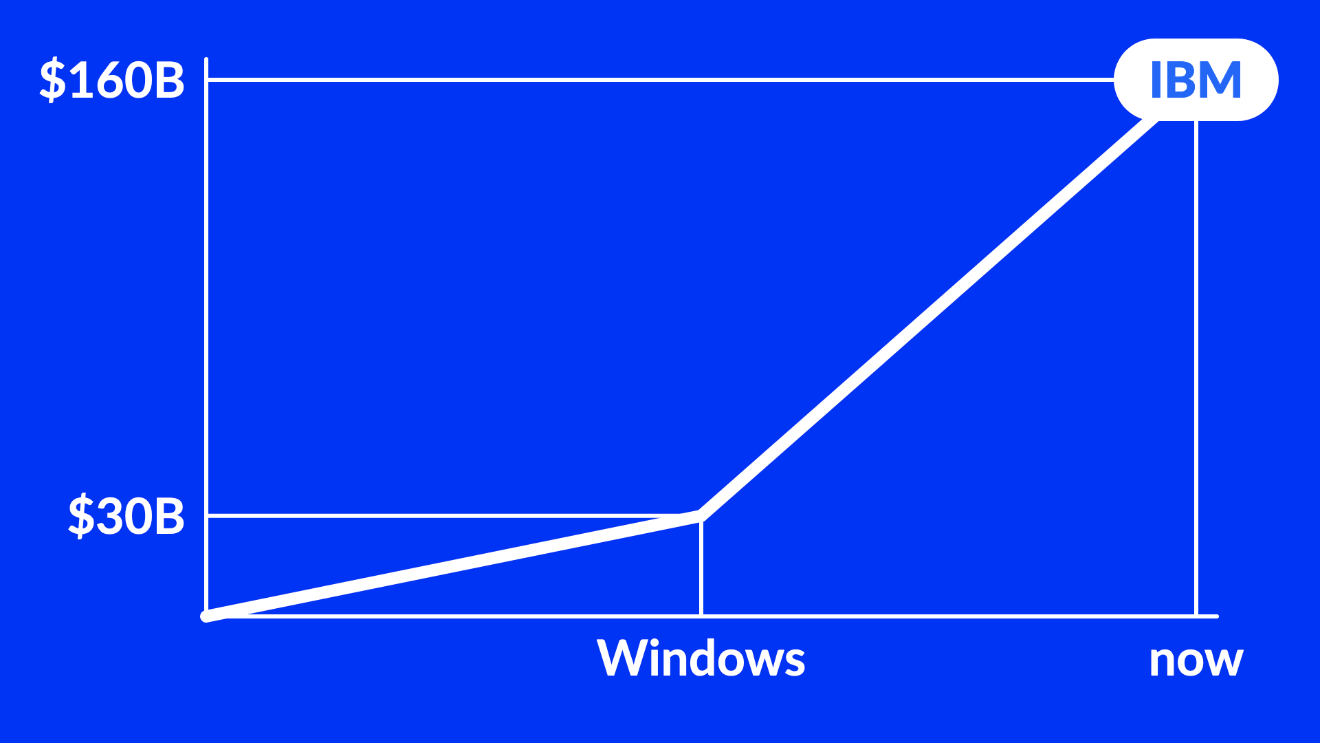
When Netscape launched in 1994, Microsoft was worth around $20 billion. Now it’s worth $3 trillion.
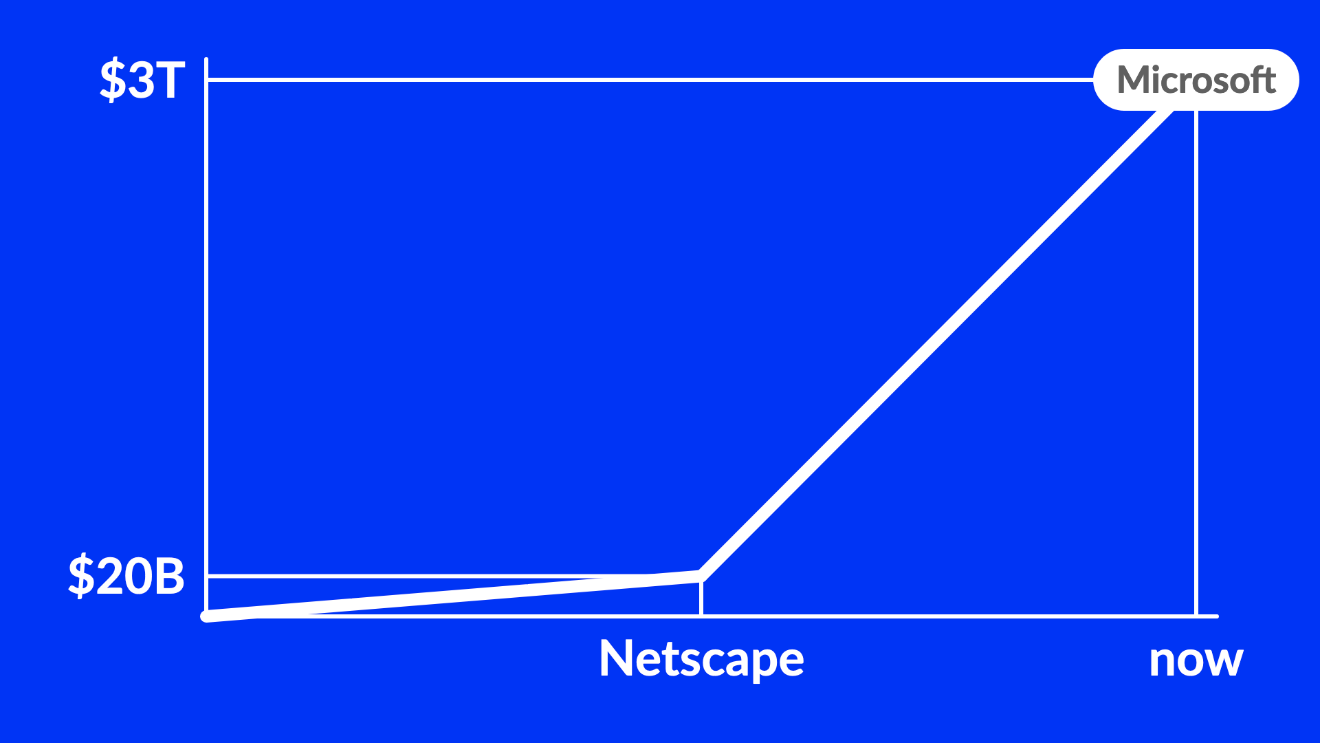
When Instagram launched in 2010, Facebook, too, was worth around $20 billion. Now it’s worth $1 trillion.
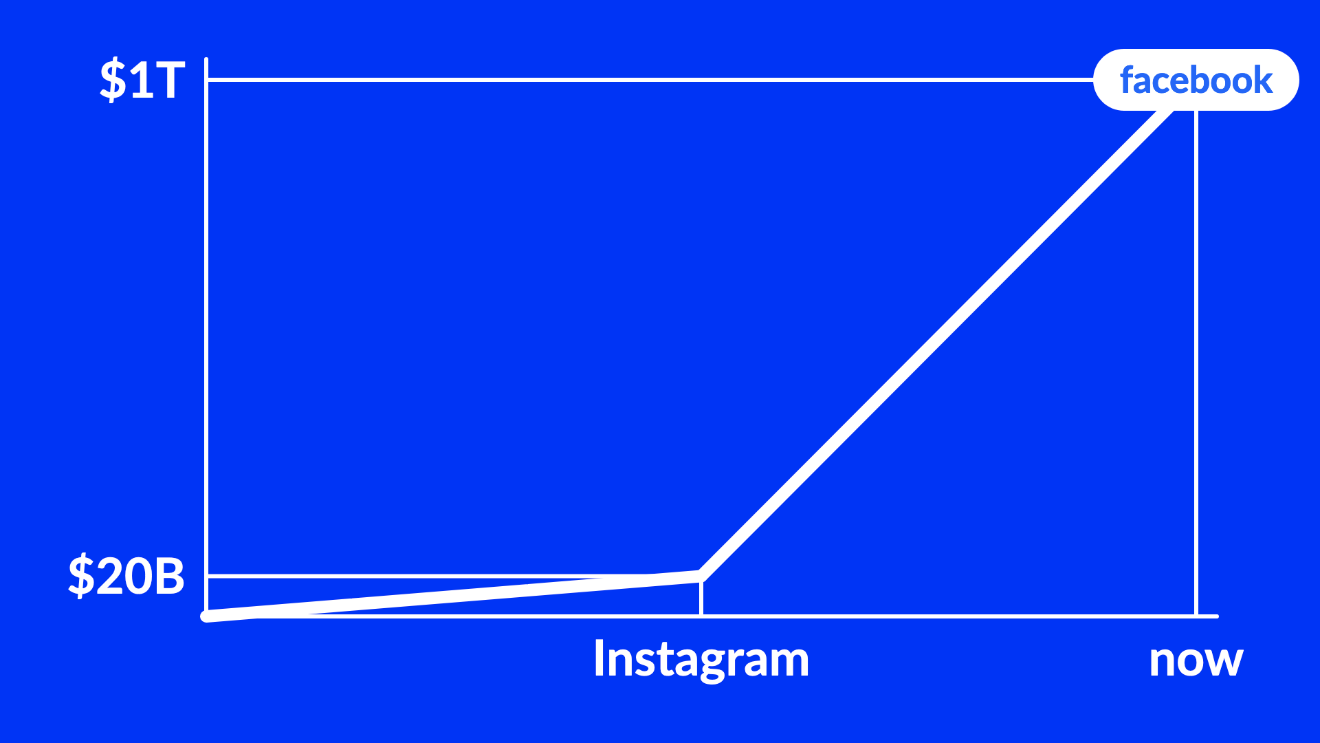
And when TikTok launched in 2016, YouTube was worth maybe $100 billion. Now it’s worth maybe $400 billion.
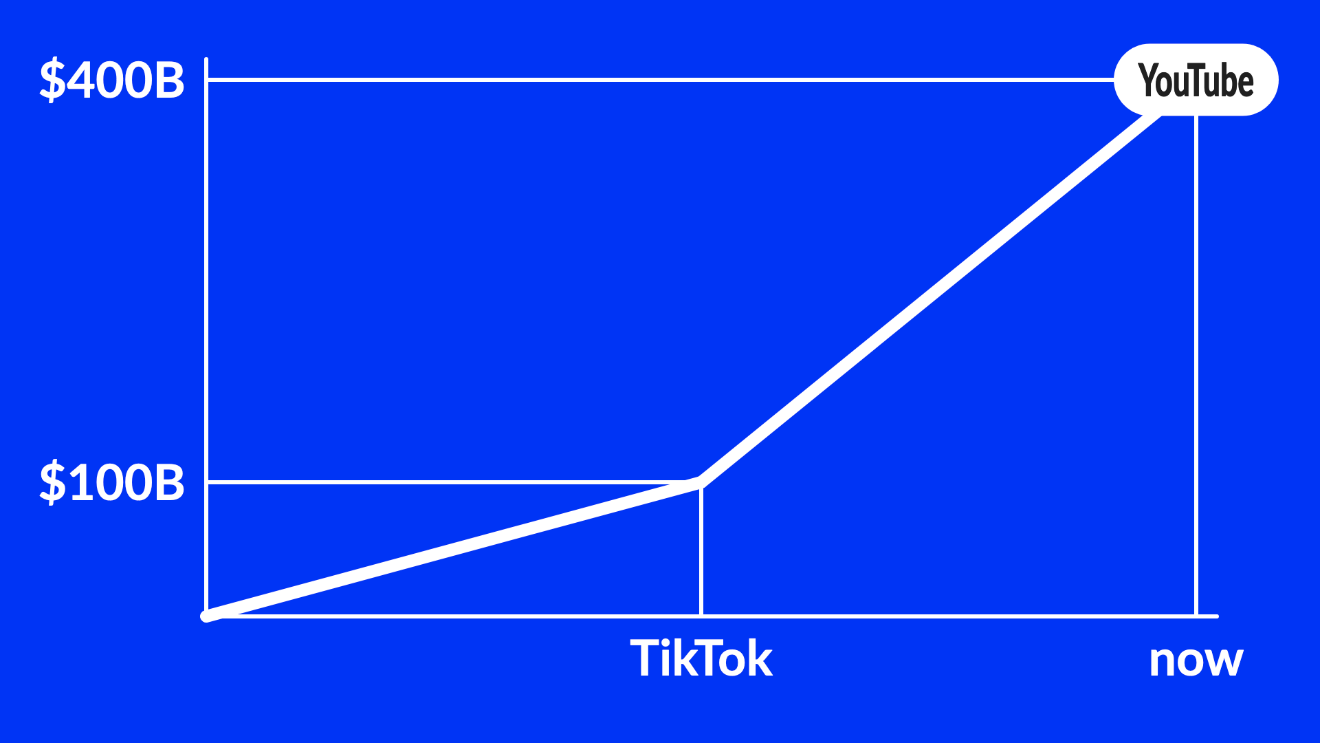
If you want to draw a lesson from tech history, it’s that when the undisputed giant of the industry is disrupted, it doesn’t die.
Even if you think that Google has missed the importance of AI and is about to be disrupted by OpenAI, you have to believe that Google will once again be just fine.
It takes something much more significant than a technological disruption to topple a tech giant.
It’s only at the dawn of something completely different – completely unexpected – that the mighty fall.
This AIn’t their first rodeo
Besides, if you think that Google has missed the importance of AI, then I’m not sure where you’ve been for the last couple of decades.
Google has been using AI to improve their search engine since 2001.
Admittedly, AI didn’t work its way to the core of the search engine, ranking results, until 2015, but that was before OpenAI was born.
With chat, at least, it is difficult to avoid the impression that Google’s playing catch-up with OpenAI. Google’s search is one-and-done. Open AI’s ChatGPT is back-and-forth in a way that makes the quarter-century-old search paradigm seem tired.

But how important is OpenAI’s first-mover advantage?
Last year, I only had to type the letter c into my browser, and it autocompleted the domain name chat.openai.com.
This year, I only have to type the letter p, and it autocompletes perplexity.ai.
Who’s to say that next year, I won’t merely have to type the letter g for it to autocomplete gemini.google.com?
And sure, Gemini is delusional about certain realities, and there’s no doubt that Google has deliberately trained it to be delusional about these realities.
But have you chatted with GPT lately? It, too, is delusional about certain realities.
Come to think of it, have you chatted with people lately? Some of us, too, are delusional about certain realities.
Remember who the AIs learn from.
Us.
It’s no wonder they’re confused.
Whose truth?
None of this matters for Google’s survival.
What matters for Google’s survival in the age of AI is its business model.
And its business model is very simple: when we want to know something, we go to google.com, and Google tells us what we want to know.
Well, kind of.
Google balances what we want to know with what Google wants us to know.
There are many ways in which what Google wants us to know might diverge from what we want to know.
Google might arrive at a particular response to a particular search because, well, it’s the truth, whether or not it’s the truth we want to hear.
Or Google might promote a particular response to a particular search because it’s a version of the truth that people with influence over Google want to push: people like politicians who’d like the tech giants to put out content that’s balanced... or their version of balanced; people like Google employees who’d like to work for an employer that’s a force for the good... or their version of the good.
Or Google might promote a particular response to a particular search because people with money – advertisers – pay them to do so.
For a quarter of a century, Google has been performing this tightrope walk – between what we want to know and what Google wants us to know – brilliantly.
After all, if Google doesn’t tell us what we want to know, we won’t come back.
But if Google doesn’t tell us what the people with influence want us to know, then Google might find itself in trouble: politicians could pass legislation to rein in the tech giants; employees might make a fuss.
And if Google doesn’t tell us what the people with money – the advertisers – want us to know, then Google won’t make a profit.
The $2 trillion avocado toast
For Google to survive in the age of AI, three things must remain true.
One. It must remain true that when we want to know something, we go to google.com. If, instead, we start going to chat.openai.com or perplexity.ai, then Google is sunk.
Google’s management know this, of course. They’ve been fighting this battle for years. They pay Apple $20 billion a year so that when you want to know something on your iPhone, you go to Google.
Two. It must remain true that Google tells us what we want to know better than anyone else.
If that stops being true, people will stop going to Google, no matter how much they pay Apple.
And three. It must remain true that Google balance what we want to know with what Google wants us to know brilliantly.
AI changes none of this.
Google’s engineers are more than clever enough to replicate what OpenAI’s engineers are doing. They might even be clever enough to surpass it.
And despite the furore over Google’s answer to GPT being a little too clumsily influenced by its employees’ politics, that’s an easy fix. If Google’s culture really starts getting in the way of their AI, they’ll ditch their culture in a heartbeat. Google is worth $2 trillion. I’m sorry, but if it comes to a choice between the self-righteous illusions of a few coddled employees and $2 trillion, those employees will find themselves out on the street without so much as an avocado toast in compensation.

Far from killing Google, AI slots seamlessly into their business model. As long as we still go to Google when we want to know something, and as long as Google tells us what we want to know at least as well as OpenAI, and as long as we don’t care that Google’s balancing what we want to know with what people with influence and people with money want us to know, then it doesn’t matter how Google arrives at a particular response to a particular search, whether it’s through a three-decade-old PageRank algorithm or through the latest in AI.
Don’t be evil
So, if AI changes nothing for Google’s business model, they’re sitting pretty, right?
Well, not so fast. In times of massive technological change, it’s not always the most immediate threat that unseats the seemingly unassailable.
Google has a vulnerability that has nothing to do with AI.
I’ve already told you what it is.
It’s that tightrope walk between what we want to know and what Google wants us to know.
They’ve been performing it so brilliantly that, indeed, none of us care that we’re not getting exactly what we want.
But it’s in the nature of a balancing act that neither side is truly happy with the outcome.
Google’s searchers aren’t truly happy. Too often, when we search, we get so many ads that the real search results don’t appear on our screen unless we scroll down.
Google’s advertisers aren’t truly happy, either.
Some businesses don’t even want to advertise with Google, they’re forced to.
Suppose you’re a widget-maker called Demon Widgets. You might notice, if you’re not a Google advertiser, that when your customers search on “Demon Widgets”, instead of showing your web site, demonwidgets.com, as, you know, a search engine should, Google shows ads for your competitors: Axiom Widgets, Beacon Widgets and Crown Widgets. Sure, demonwidgets.com is there, at the top of the real search results, but as I say, the real search results don’t appear on your customers’ screens unless they scroll down. So you’re forced to pay Google so that your ads appear ahead of your competitors’ ads, otherwise your customers won’t find you, even when they’re explicitly searching for you.
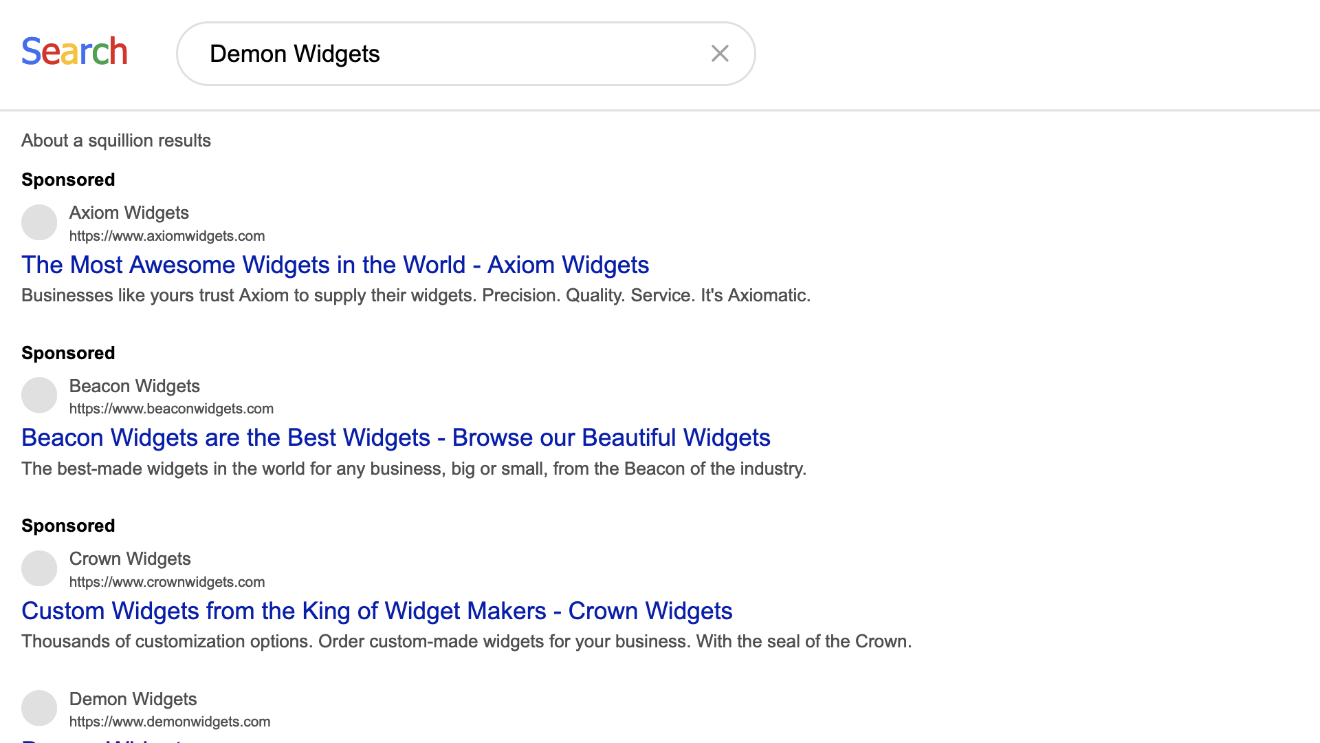
Does that sounds a little like extortion? It does to me.

And the businesses that do want to advertise with Google are no happier.
Here’s how Google works for its advertisers. Three businesses – Axiom Widgets, Beacon Widgets and Crown Widgets – each have 1,000 customers, and each make $10,000 profit over the lifetime of an average customer. Not a bad business to be in.
Axiom Widgets, however, sees an opportunity. It places ads in Google’s search results. Now, whenever a new widget-buyer comes into the market, they go to Axiom Widgets, who look like the biggest, best supplier. It costs Axiom $1,000 per customer acquired to place these ads, but it’s worth it, since Axiom Widgets still makes $9,000 profit from each customer.
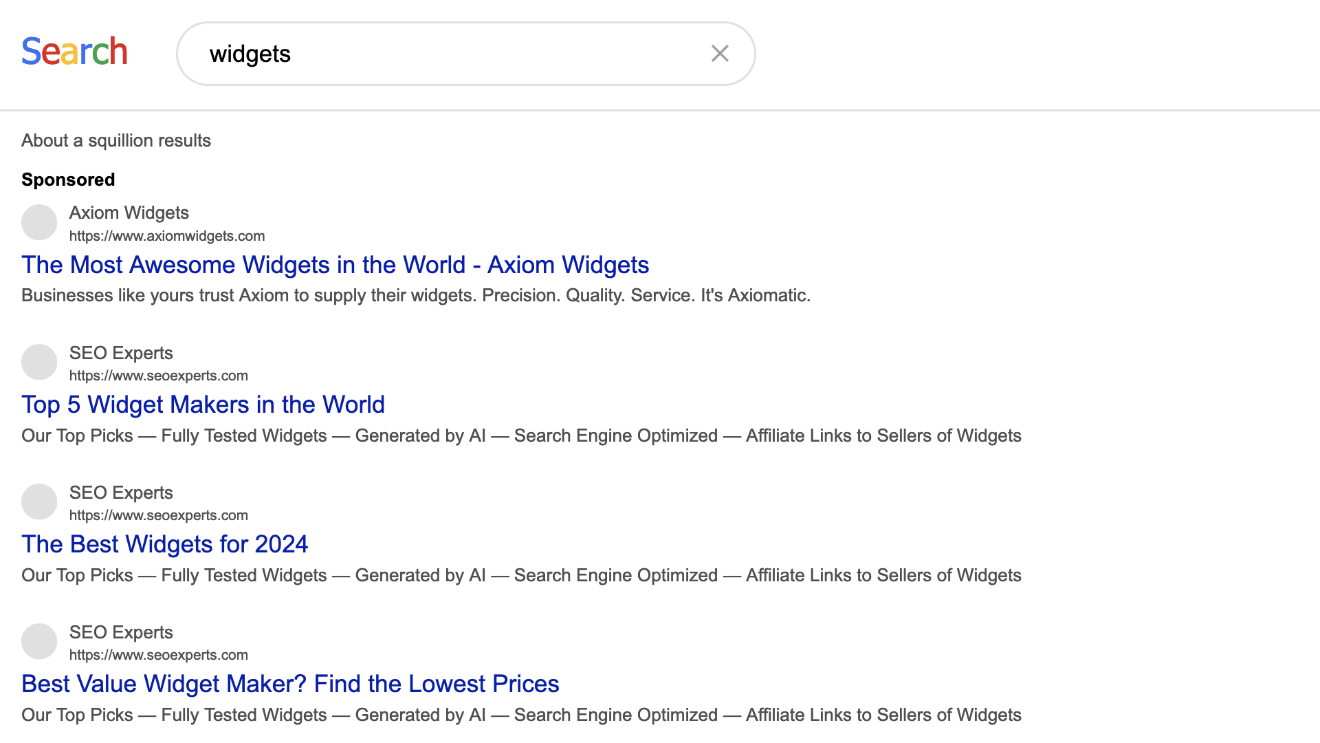
Beacon Widgets, seeing its market share decline, decides to outbid Axiom. Their ads now appear in Google’s search results ahead of Axiom’s, albeit at a cost of $2,000 per customer. Still, it’s worth it, since Beacon Widgets still makes $8,000 profit per customer.
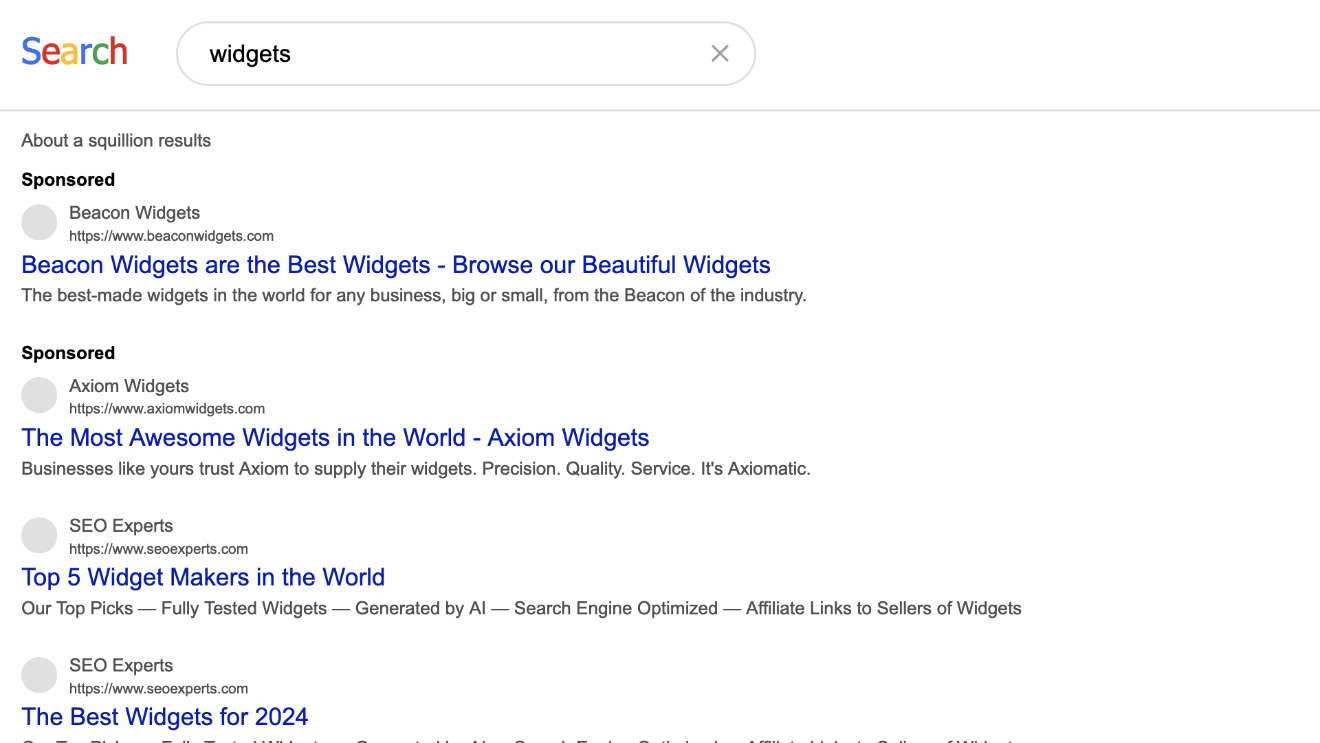
Crown Widgets, seeing its market share collapse, decides to outbid both Axiom and Beacon. Their ads now appear at the top of Google’s search results, albeit at a cost of $3,000 per customer. Still, it’s worth it, since Crown Widgets still makes $7,000 profit per customer.
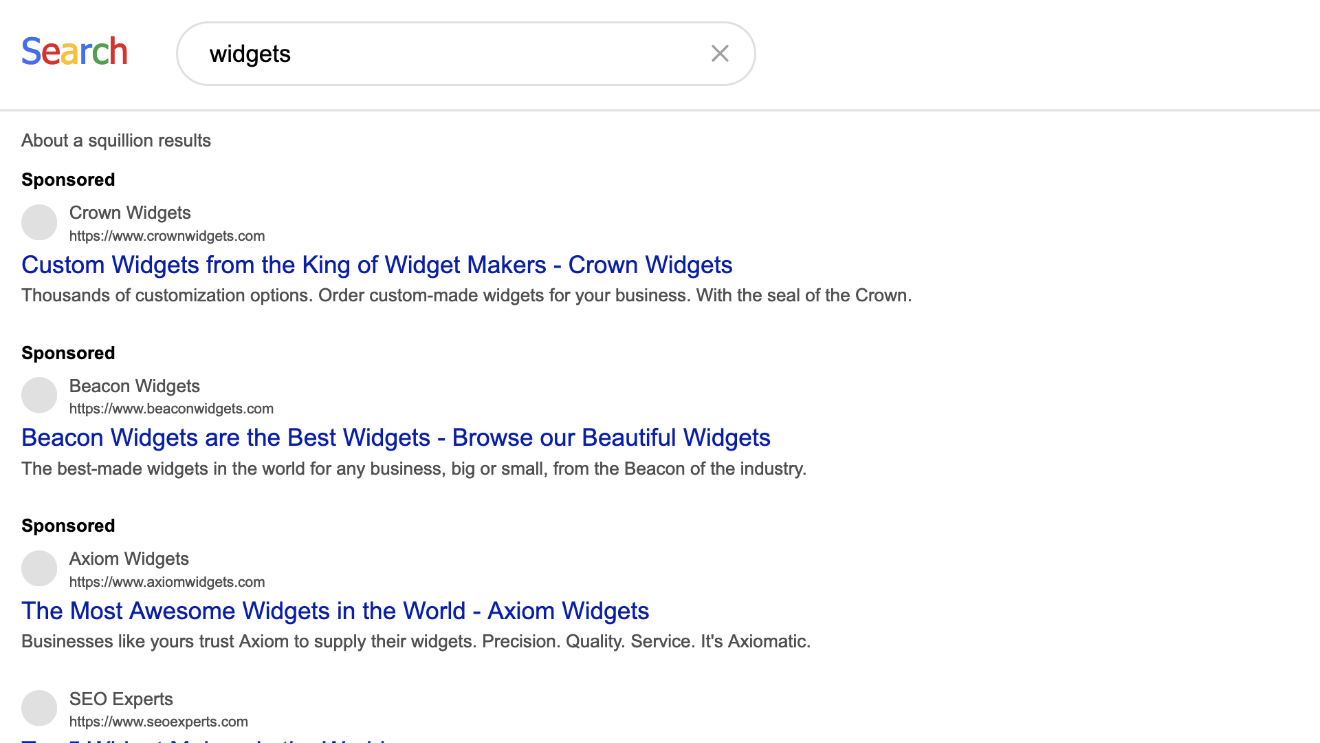
Axiom Widgets, seeing its opportunity slip away, decides to up its bid. Their ads now appear in Google’s search results ahead of their competitors, albeit at a cost of $4,000 per customer. Still, it’s worth it, since Axiom Widgets still makes $6,000 profit per customer.
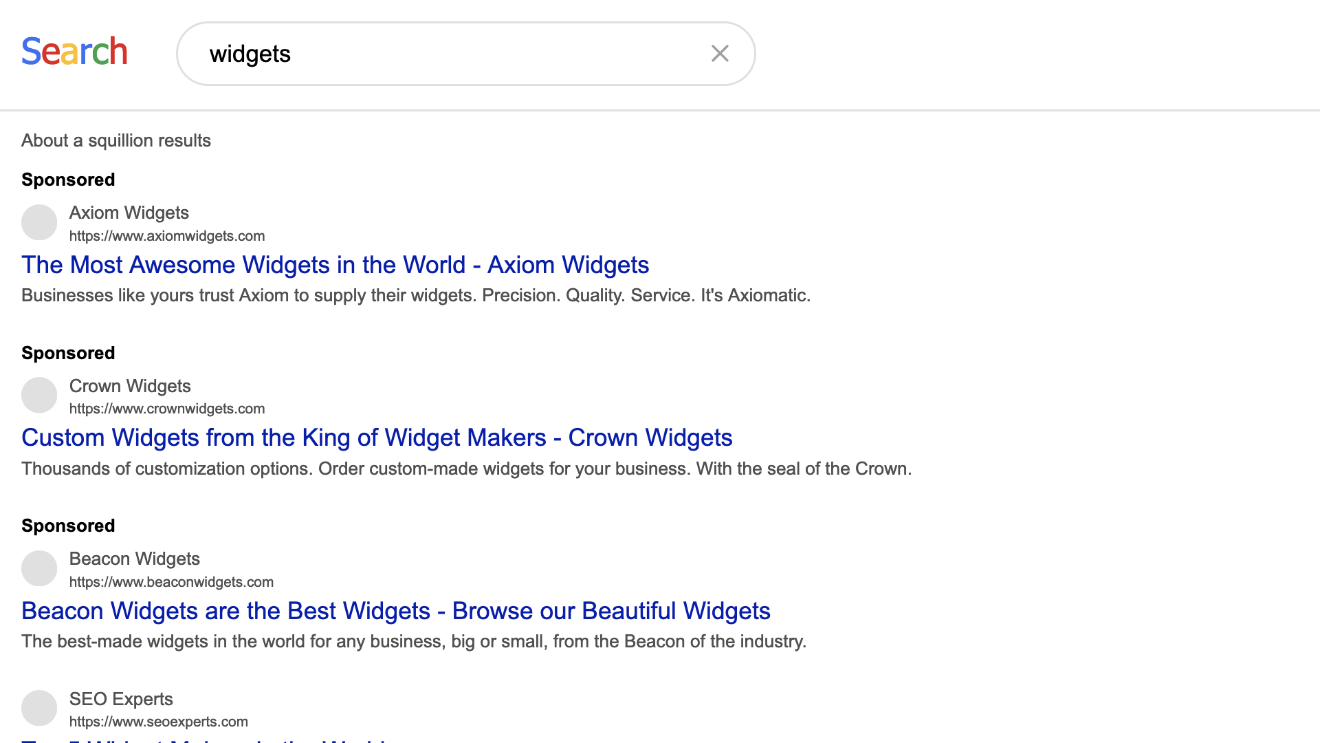
And so it goes until Axiom, Beacon and Crown are each making only $1,000 profit over the lifetime of an average customer.
Google is now making $9,000 for each of these widget-makers’ customers... and Google’s not even making any widgets.
The widget-makers, on the other hand, pine for the days when they made $10,000 per customer.
If you ever wondered why Google is worth $2 trillion but the widget-makers of the world are worth rather less, well, now you know.
Counterposition
Google has to go on performing this tightrope walk between what we want to know and what Google wants us to know because, well, it’s so profitable.
But what if something else came along that didn’t have to perform that tightrope walk?
What if, when you searched for Demon Widgets, you found Demon Widgets?
I know, it’s a revolutionary idea, right?
No tightrope walk.
No balancing act.
Not what someone else wants you to know.
What you want to know.
Axiom Widgets, Beacon Widgets and Crown Widgets couldn’t appropriate Demon Widget’s customers.
And Google couldn’t appropriate Axiom Widgets’, Beacon Widgets’ and Crown Widgets’ profits.
I don’t think a search engine could pull off such a reversal of fortune. Google search is too deeply entrenched.
But what if the something else that came along weren’t a search engine?
Everything must change
AI won’t kill Google.
Open Web Mind will kill Google.
It’ll kill Google because it doesn’t perform a tightrope walk that makes no one happy.
It doesn’t promote ideas that people with influence want to push.
It doesn’t promote ideas that people with money have paid to be pushed.
It can’t.
It can’t, because it’s architected to treat all ideas equally.
Of course, that’s not enough to kill Google.
If Open Web Mind were the same as Google, only without the extortion, it would fail. Google’s too deeply entrenched and too deep-pocketed to allow a like-for-like competitor to threaten its power and its profits.
But Open Web Mind is not the same as Google.
It’s completely different.
It’s not a search engine. It’s a think engine.
You don’t search. You think.
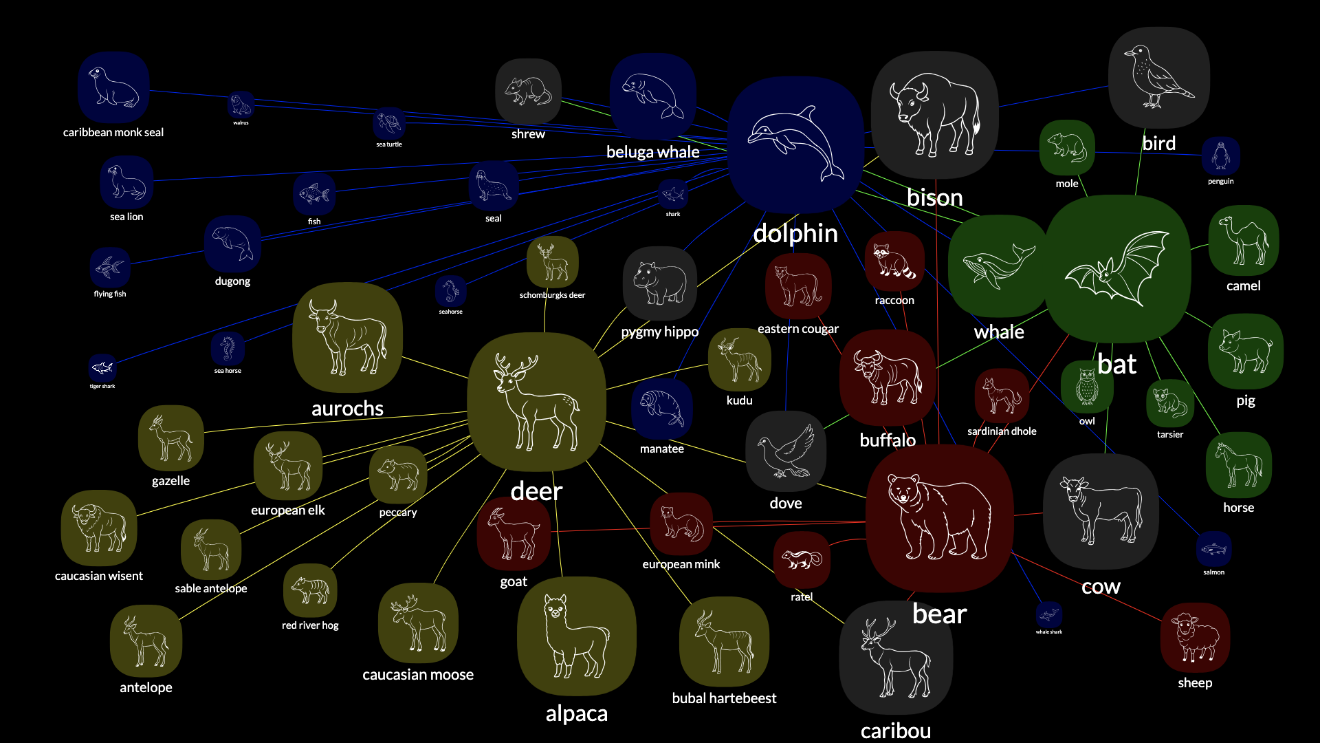
Google has long been expecting AI.
But Open Web Mind isn’t artificial intelligence. It’s human intelligence.

It’s completely unexpected.
And it’s at the dawn of something completely different – completely unexpected – that the mighty fall.







